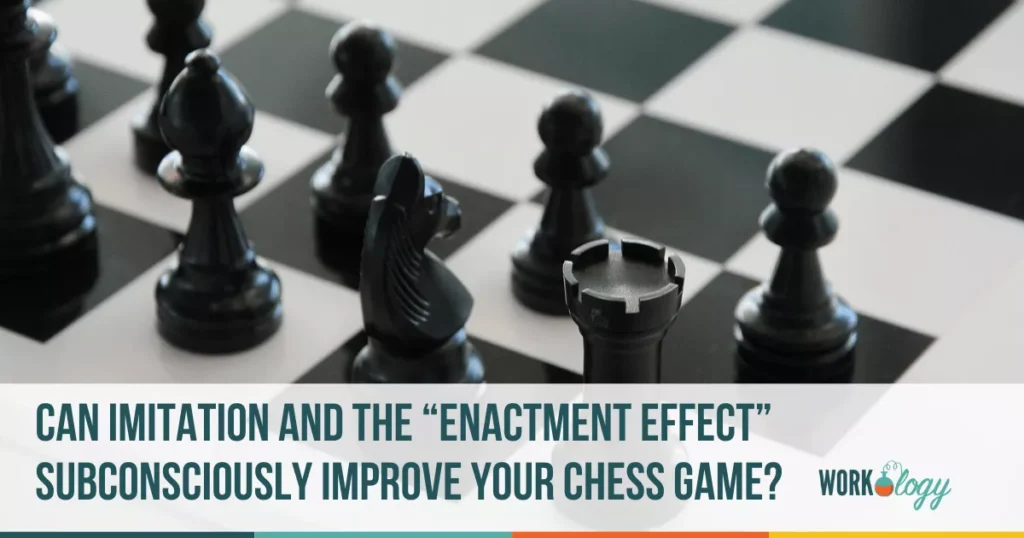Have you ever heard of the concept of subliminal learning? While the gimmicky idea of listening to educational tapes during sleep has been largely rubbished as having any tangible benefits, there is significant scientific evidence suggesting that your brain is capable of assimilating information without your conscious awareness of it – and that the information can be applied in situations after the fact.
That might not sound like it has much to do with improving your chess performance, especially since the game is such an involved and hands-on one. But when it comes to imitation and the “enactment effect”, there is a school of thought which believes that your brain can fill in the thought processes behind certain moves, even if you’re only performing them mechanically.
Learning without comprehension?
It sounds counter-intuitive to suggest that you can improve your understanding of chess without actually understanding the moves you make. However, the principles of implicit learning point towards the idea that it is entirely possible.
For example, imagine you’re asked to replicate the chess openings favored by Grandmasters and champion chess players. These set-ups are so complex and the individuals who use them are so advanced in their analytical capabilities that they are planning many moves ahead, which can make their ultimate purpose difficult to discern for amateur players. Nonetheless, by imitating them over and over again, the “enactment effect” will come into play and subconsciously improve your game.
What is the “enactment effect”?
First dreamt up by behavioral scientists decades ago, the “enactment effect” refers to the phenomenon that learners who perform an action are much likelier to remember it than those who simply read about it or see it done by others. It was applied largely to the learning of new verbs or verb phrases and was demonstrated to not only make it easier to remember a single phrase, but also call to mind multiple phrases more easily and for longer.
In chess terms, the “enactment effect” involves repeating moves that you know are the correct ones, even if you don’t fully understand what makes them correct. By performing the action mechanically, you will retain the key piece of information – that they are correct – and can continue to deploy them in real game situations. Figuring out why they’re correct can come later.
Behind the scenes
Indeed, even the “why” needn’t be arrived at by virtue of a conscious process. Imitating the best strategies will familiarize you with them on a surface level, but behind the scenes, the cogs in your brain will be whirring as it tries to figure out what makes the move such a positive one. This kind of subconscious learning is invaluable in “chunking” – adding pieces of information bit by bit to your overall store, thus preparing you for creating a connected strategy.
While it might seem like endless imitation and repetition are worthless at the outset, you will experience positive outcomes from keeping them up, even if you do not notice it actively happening! Implicit learning, therefore, is a key weapon in the arsenal of every budding chess player keen to improve their game and one which should be utilized regularly.
Even if you don’t always understand the mechanics behind the moves you’re instructed to play, imitating them can help to unlock the “enactment effect” and subconsciously give your game a boost over the long term.









